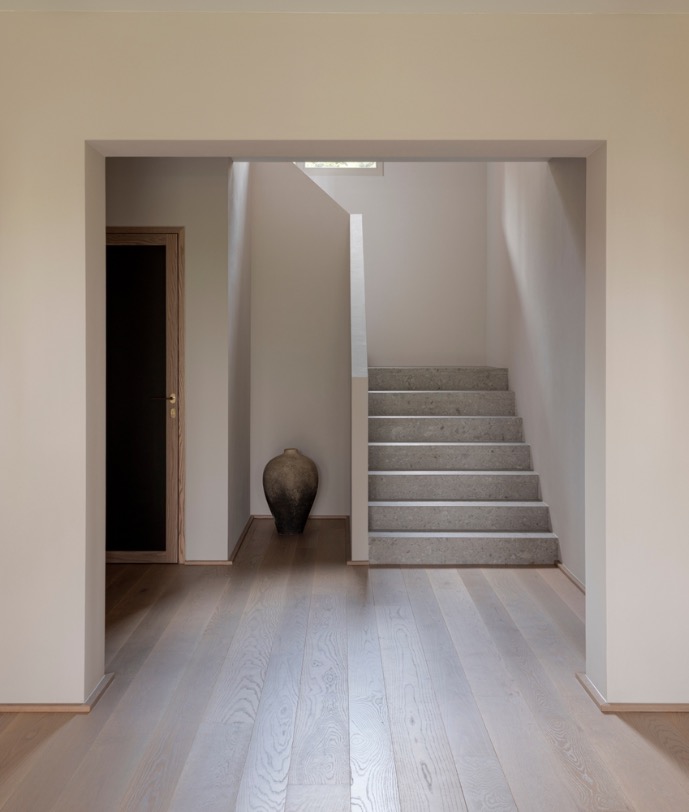Do you want to discover how different types of flooring impact your daily well-being and comfort? At Yvyra, experts in wood flooring and decking for both indoor and outdoor spaces, we understand the importance of choosing the right surface.
Below, Yvyra offers you a specialized guide on the various types of flooring, their features, and how they affect your posture and comfort.
Types of Indoor Flooring: Features and Benefits
Choosing the right type of flooring for a home not only determines the aesthetic of the space but also directly influences ergonomics and everyday comfort. The right floor can improve posture, reduce fatigue, and provide a sense of well-being when walking or standing for extended periods.
Wood Flooring
Natural wood flooring is known for its warmth and elegance. It acts as a thermal and acoustic insulator, creating a cozy environment. Additionally, its surface feels pleasant to the touch and doesn’t trap dust mites, making it hygienic. However, it requires regular maintenance and is sensitive to moisture.
Laminate Flooring
Made up of multiple layers, laminate flooring imitates the look of wood at a more accessible cost. It is resistant to scratches and stains, and easy to install and maintain. However, its moisture resistance is limited, so it is not recommended for humid areas.
Vinyl Flooring
Vinyl floors, made of PVC, are 100% waterproof, making them ideal for kitchens and bathrooms. They offer a wide variety of designs and feel comfortable underfoot. In addition, they are easy to install and require minimal maintenance.
Porcelain Flooring
Porcelain tiles are known for their durability and moisture resistance. Available in various finishes, including wood-like appearances, they are ideal for high-traffic areas and wet environments. They are easy to maintain, although their installation can be more complex.
Sustainable Flooring for Homes
Sustainability is a key factor when choosing flooring. Certified wood floors ensure responsible forest management. Linoleum, made from natural materials like linseed oil, is biodegradable and durable. Cork, harvested without harming the tree, provides insulating properties and is a renewable option.
Differences Between Natural and Synthetic Floors
Natural floors, such as wood or stone, offer authenticity and unique properties but may require more maintenance and come at a higher cost. Synthetic floors, such as laminate or vinyl, mimic the look of natural materials, are more affordable and easier to maintain, though they may lack the warmth and longevity of natural options.
Types of Flooring: Which to Choose According to the Room?
- Living rooms and bedrooms: Warm and comfortable options like wood or laminate are recommended. They create a cozy atmosphere and feel pleasant to the touch.
- Kitchens and bathrooms: Due to high moisture exposure, vinyl or porcelain flooring is ideal. These are water-resistant and easy to clean.
- High-traffic areas: In zones like hallways or entrances, durable floors such as porcelain tiles or high-quality laminates are recommended, as they can withstand daily wear and tear.
Choosing the right type of flooring is essential to ensure comfort, aesthetics, and functionality in every area of your home. Considering factors such as durability, maintenance, sustainability, and suitability for each room will help you make informed and effective decisions.
Frequently Asked Questions (FAQ) About Flooring Types
What is the best flooring for homes with pets?
Vinyl and high-resistance laminates are ideal as they resist scratches and are easy to clean.
Can wood flooring be installed in bathrooms or kitchens?
It is not recommended due to moisture. However, wood-look vinyl is a great water-resistant alternative.
What is the most eco-friendly flooring option?
Linoleum and cork are sustainable choices, as is certified wood due to responsible forest management.
What’s the difference between laminate flooring and floating wood floors?
Laminate is synthetic and more budget-friendly, while floating floors are typically made from natural or engineered wood, offering greater warmth and durability.
Which flooring works best with radiant heating?
Porcelain tiles and some laminate floors are compatible with underfloor heating systems due to their thermal conductivity.
At Yvyra, we are committed to offering flooring solutions that combine aesthetics, comfort, and functionality. If you’d like personalized advice or more information about our range of wood floors and decking, don’t hesitate to contact us with no obligation. We’re here to help you find the best flooring option for your home.
